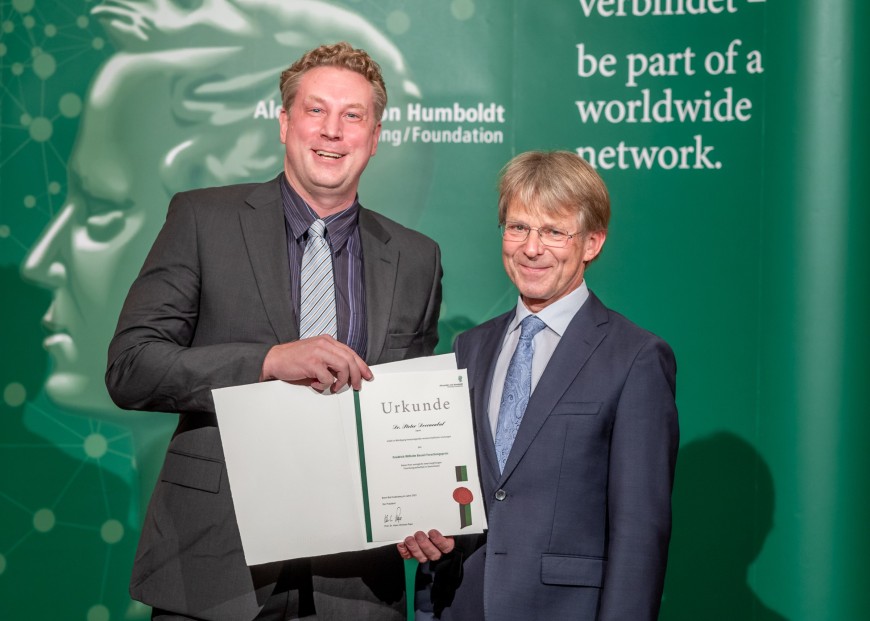Friedrich Wilhelm Bessel Research Award Winner chooses TU Darmstadt
Pieter Christiaan Doornenbal stay at the Institut für Kernphysik
2022/11/04
Dr Pieter Doornenbal, RIKEN Nishina Center, Japan, received a Friedrich Wilhem Bessel Research Award from the Alexander von Humboldt foundation. The prize consists a research fellowship and the awardees can choose an host institution in Germany for collaborations during stays from few months to a year. Dr Doornenbal selected TU Darmstadt.

Prof. Alexandre Obertelli will be the host at the Institut für Kernphysik. The research line of Dr Doornenbal is very much connected to the research within the SFB1245 (A. Schwenk spokesperson).
International reference in experimental nuclear physic
Dr Pieter Christiaan Doornenbal is an international expert in experimental nuclear physics with rare isotopes. He leads the in-beam gamma-ray spectroscopy technique at the Radioactive Isotope Beam Factory of the Riken Nishina Center. Together with his international collaboration, he made pivotal contributions to our understanding of the shell structure of atomic nuclei, focusing on isotopes far-off stability with a large neutron excess. During his stay in Germany, Doornenbal intends to develop new techniques to further explore the shores of the nuclear landscape.
The research of Dr Doornenbal is intimately linked to part of the activities within the Collaborative Research Center SFB1245 dedicated to the understanding of the strong interaction from precision nuclear structure measurements, electroweak interactions and related astrophysical phenomena.
Over the second period of the SFB1245 , researchers developed a new target-tracking system (called STRASSE) to enhance the luminosity of experiments with rare isotopes. The close collaboration with Dr Doornenbal to perform experiments with STRASSE will be an asset, and his long stay at the IKP of TU Darmstadt will allow to develop new research topics with this device.
While in Germany, Dr Doornenbal will contribute to the development of the detector and will build expertise which will become essential when the experiments will be performed from 2023. In addition, Dr Doornenbal will finalise the concept of a next-generation high-efficiency gamma detector for nuclear spectroscopy programs at the RIBF, relevant to the SFB physics case.
Obertelli/pg
